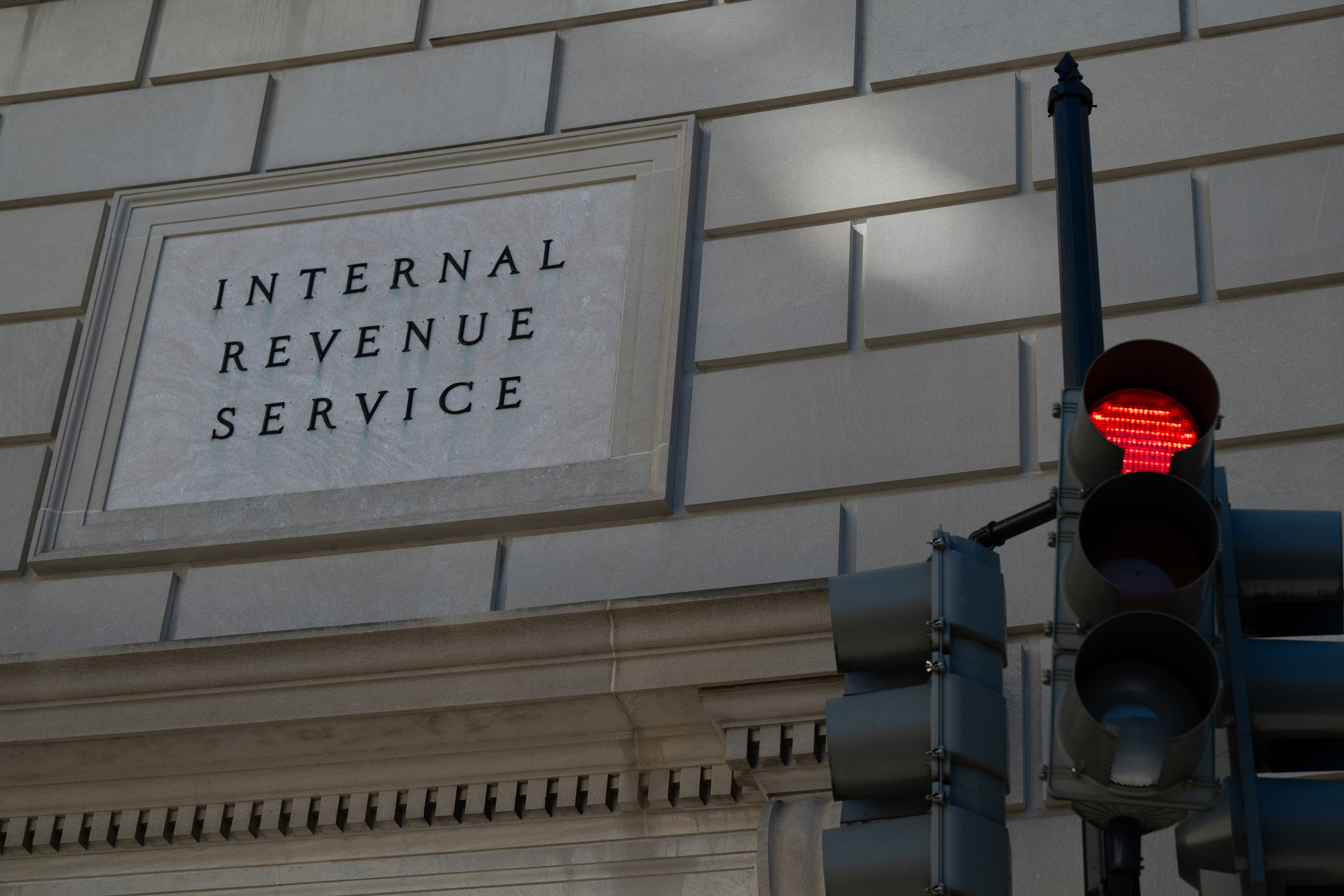Letters to the Editor is a periodic feature. We welcome all comments and will publish a selection. We edit for length and clarity and require full names.
Sounding the Alarm for Ambulances
Thank you for shedding much-needed light on the exorbitant costs and lack of reimbursement that have become a harsh reality for many ambulance services across Colorado and the nation (“Insurers Fight State Laws Restricting Surprise Ambulance Bills,” July 9). While it’s vital to protect patients from “surprise” bills — something your coverage highlights — it’s equally important to acknowledge the other side of the equation.
Ambulance providers often receive reimbursements well below the actual cost of delivering care. A recent industry report found that ambulance services are under‑reimbursed by an average of $1,526 per transport, with Medicare alone paying nearly $2,334 less than the cost incurred. These shortfalls are unsustainable and threaten the financial viability of emergency responders.
It’s crucial that ambulance companies have a stronger voice in this conversation. Reimbursement rates aren’t just numbers — they determine whether crews can stay on the road, maintain readiness, and invest in vital mobile health care services. Emergency preparedness relies on stable funding, and when that funding falls short, communities suffer.
By spotlighting the reimbursement crisis, this article helps lay the groundwork for policy solutions. But let’s go a step further: We need to elevate the voice of ambulance agencies themselves, so lawmakers and insurers understand that fair payment isn’t a bonus — it’s essential to keep us safe.
— Patrick Fahey, Weymouth, Massachusetts
A DevOps engineer shared the NPR version of the article on social media:
Families hit hard by surprise ambulance bills-some see debts soar even with insurance. More states are acting, but a national solution may be needed for real protection. https://t.co/Efb6me3Png pic.twitter.com/HRSW5mCdiu
— Michael Bennett (@M1keB_77) July 11, 2025
— Michael Bennett, Denver
‘Congress Is Playing Political Hot Potato With My Health’
I’m 60, self-employed, and living with congestive heart failure. My ejection fraction is dangerously low, and the Affordable Care Act is the reason I can see a doctor, take my medication, and stay alive.
Now Congress is playing political hot potato with my health. If they don’t extend the ACA’s enhanced subsidies by August, my $30 premium could jump to over $800. That’s over 25 times as much. I’m not a hedge fund manager — I’m an independent contractor. Unless I start selling organs (not ideal when your heart’s the issue), I can’t keep up.
I’m too young for Medicare and have no employer plan. I’ve worked, paid taxes, and managed my condition responsibly. So why am I being priced out of care?
If Congress won’t listen, I’m asking you — the press — to help. Tell this story, or one just like it. Millions of Americans are quietly panicking, walking the same tightrope. These policy changes aren’t just math — they’re about human lives.
Because if nothing changes, a lot of us won’t be around to write letters next year.
— Kevin Bahn, Tamarac, Florida
Americans Pay the Price for a Sick Health Care System
I am sure your readers would be interested in how American health care costs compare with those of the European Union and Switzerland (“Bill of the Month: A Texas Boy Needed Protection From Measles. The Vaccine Cost $1,400,” June 30).
In France, the private price for the MMR vaccine is around $13 (in U.S. dollars), provided you have a prescription. Any pharmacy can administer the jab for about the same.
Here in Switzerland, the most expensive country in Europe, this vaccine costs under $40, as a private purchase.
I’ve moved 18 times with family across Western and Eastern Europe and have had expat staff in 35 countries on four continents.
It’s very clear to me now that most national attempts at health care are a costly failure, with few notable exceptions: Germany and, surprisingly, Spain. Then there’s Switzerland, which has among the best health care systems in the world — close to perfect. Basic coverage terms are federally mandated and cost around $430 a month with a $2,500 annual deductible, irrespective of age, after 26. And with a $300 yearly deductible, the premiums are about 40% higher.
Something is very off in the USA. It’s not that complicated.
— Clement Cohen, Geneva, Switzerland
A registered nurse shared his solution for taming Medicaid fraud in a post on X:
“They’ll give you a bone if you stay in the mud.It’s relatively easy to fix the benefit cliff: just phase in a graduated premium for Medicaid based on income above the threshold. If we had political will to do this, it would prompted self-sufficiency.https://t.co/4fxSnmETRd
— Jacob Larsen 🇺🇸 🇩🇰 🇺🇦 (@SLCPaladin) July 22, 2025
— Jacob Larsen, St. George, Utah
Why ‘Start From Scratch’ Vaccine Testing Can Be Dangerous
I anticipate we’ll be hearing more discussion around the use of “inert” placebos — like saline solutions — as the Advisory Committee on Immunization Practices and the Centers for Disease Control and Prevention approach new vaccine recommendations (“Kennedy’s Vaccine Advisers Sow Doubts as Scientists Protest US Pivot on Shots,” June 27). This type of messaging seems poised to gain traction with the public, despite its ethical implications.
Increasingly, I’m seeing criticism that vaccine development doesn’t rely on inert placebos. This argument is often used to advocate for new clinical trials — even for vaccines already proven effective — and to justify beginning booster development from scratch.
While inert placebos may have been used and were appropriate in early stages of research for vaccines, their use becomes ethically problematic when a safe, effective vaccine already exists. In such cases, withholding protection from participants in a placebo group can put them at real risk, especially during the development of updated or booster doses of vaccines.
I believe it’s critical that organizations like KFF Health News help clarify this issue for the public. KFF is a highly respected, nonpartisan source with powerful communication reach. I’m a subscriber to KFF Health News and appreciate the way your reporting draws in readers with accessible, engaging headlines — and that your articles are available for syndication to other outlets.
Two key points I found buried in an American Academy of Pediatrics article stood out:
“Many childhood vaccines were tested originally in randomized clinical trials that included placebo or comparison groups. If the vaccine is for a disease that currently has no vaccine, the placebo may be saline or another substance known to be safe. If the vaccine is a potential replacement for an existing, older vaccine, the comparator group may receive the older vaccine that has already been tested rather than an inert placebo.”
“When a safe, effective vaccine already exists against a disease, giving children in the placebo group no protection against that disease is unethical. Unvaccinated children can contract dangerous illnesses. Parents of children in the placebo group would not know they didn’t get the vaccine and that their child is unprotected.”
That brings up another important question: Who would volunteer for a randomized, double-blind, controlled trial involving an inert placebo for an existing vaccine? People hesitant about vaccines are unlikely to participate, for fear they will receive the vaccine. And those who support vaccination may be reluctant to risk receiving an inert placebo instead of testing the current, older proven version against a new proposed version.
— Alice Henneman, Lincoln, Nebraska
A virologist and podcaster chimed in on the June installment of our “Bill of the Month” series:
A post doctoral fellow at UTMB couldn’t afford the university’s insurance option for his family so he bought a separate plan. It cost him $1400 to get his child the measles vaccine. During an outbreak. Get your vaccines now, before they are not covered. https://t.co/f3wWRouevA
— Heather McSharry, PhD (@PathogenScribe) July 1, 2025
— Heather McSharry, Austin, Texas
A Premium Shell Game?
I read Michelle Andrews’ article today, published in the San Francisco Chronicle (“Have Job-Based Health Coverage at 65? You May Still Want To Sign Up for Medicare,” June 18). Thanks for reporting on this important issue.
You describe as contributing factors: ignorance of the employee, the lack of any requirement that Medicare notify the employee, and the failure of the broker to notify.
Perhaps I missed it, but I believe there’s an important additional factor you didn’t mention: the profit of the commercial insurance carrier. In my experience, folks don’t notice that their primary insurance has changed to Medicare primarily because their employer is still deducting the premium for their commercial group health insurance.
Isn’t it fraud for the insurance carrier to collect premiums for a policy for which the subscriber is visibly no longer eligible by law?
There’s a financial incentive for the commercial carrier not to tell the subscriber that their coverage has ended, and they are now eligible for a Medicare Advantage supplemental policy (with a much lower premium) if they sign up for Medicare: The commercial carrier can collect high premiums, then decline to pay benefits.
You mention that Medicare representatives note they are not required to notify subscribers. Why? Coincidence? More likely, the commercial insurance companies actively lobby against notification.
Also, there’s a financial incentive for hospitals to perform procedures on patients who are 65 or older and still on a commercial plan. Pretty sure the hospital billing office knows quite well they will eventually be able to bill the patient the retail fee, which is typically 10 times as much (or more) than the Medicare-discounted fee.
In my experience, this is not a doctor issue, as the physician rarely pays any attention to insurance details. But it’s very much a billing office issue.
— John S. Smolowe, Menlo Park, California
A reader in Connecticut tweeted his opinion on the risks of cannabis for an aging population:
Normalized cannabis use now will yield a big public health problem later and all the data points in that direction…👇🏼“As Cannabis Users Age, Health Risks Appear To Grow” https://t.co/xNrqqz1k1L via @kffhealthnews
— Brandon M. Macsata 🎗️ (@Purple_Strategy) June 9, 2025
— Brandon M. Macsata, New Haven, Connecticut
Getting Ahead of Known and Unknown Threats
As highlighted in your article “‘MAHA Report’ Calls for Fighting Chronic Disease, but Trump and Kennedy Have Yanked Funding” (July 2), proposals to eliminate the National Center for Chronic Disease Prevention and Health Promotion do not align with efforts to address our country’s chronic disease crisis. These plans also further underscore the importance of strengthening America’s public health infrastructure not only to save lives, but also to ensure taxpayer dollars are used wisely.
For each dollar invested in disease prevention, the Trust for America’s Health estimates, $5.60 in downstream costs can be saved nationwide — and this figure is even higher in some states.
But just as cuts to chronic health research will hamper the federal government’s goals of preventing diabetes, heart disease, and obesity, so too do cuts to broader public health funding streams inhibit state and local health departments’ ability to stop outbreaks of measles, drug overdoses, or hepatitis, among many other preventable conditions.
Investments in public health have saved lives and strengthened our country. Identifying emerging threats quickly — whether they come from infectious diseases, zoonotic illnesses, accidents, or injuries — is vital to mitigating them. Unfortunately, federal cuts to vital public health funding streams and programs make it increasingly difficult for our nation’s leaders to understand the threats facing their communities and make the most informed decisions possible to help their communities.
Across the country, public health departments are scaling back staff and delaying plans to adopt better technology due to funding constraints; therefore, many departments lack the resources to detect and respond to threats in a timely manner. Rural and underserved communities that have fewer resources to sustain or replace federal investment are at greatest risk.
Without continued investment in public health infrastructure — from the federal government as well as state, territorial, local, and tribal governments — the impact of future health risks will be multiples higher on both the national health care system and the resources (including government investment) needed to address whatever may be coming next.
To truly improve public health, our leaders at every level of government should be doubling down on public health systems, both infrastructure and technology, as the foundation and path to keep America healthy.
— Eric Whitworth, CEO of InductiveHealth, Atlanta
The CEO of 4sight Health had this advice, posted on X:
Don’t listen to what the regime says. Watch what it does. What this story calls “contradictions” and “inconsistencies” are lies and diversions from its anti-health agenda. The market must pick up the chronic disease prevention torch. https://t.co/SgWYe3KCtp
— David Johnson (@4sighthealth_) July 8, 2025
— David Johnson, Chicago
Preventive Physical Therapy Can Spare You From Injury — And Rehab
Thank you for recently highlighting the critical need for quality physical therapy (“How To Find the Right Medical Rehab Services,” July 15) and providing a comprehensive guide on navigating rehabilitation services after hospitalization. It is also important to note the preventive power physical therapy has before an acute injury strikes.
Physical and occupational therapy services are not just a form of post-accident care but are also proactive, non-pharmaceutical strategies to preserve strength, balance, and independence — especially for our aging population. And research shows that when physical therapy is the first line of treatment for certain conditions like lower back pain — rather than injections or surgery — Medicare Part A/B costs drop by 19% compared with patients choosing injections first and by 75% compared with surgery-first cases.
Moreover, physical therapist-led fall prevention programs have been shown to reduce fall risk, while also cutting emergency room visits, hospitalizations, and opioid use among older adults. These numbers matter deeply in an aging America where 30 million older adults fall each year and the lifetime medical cost of treating falls is over $100 billion annually. And yet, the Medicare system often prioritizes post‑injury treatment over preventive care, delaying access to essential physical therapy until after damage occurs.
In light of our nation’s need for more preventive care, it is time for our Congress to enable easier, earlier access to physical therapy. One way lawmakers can help is by supporting and passing the bipartisan Stopping Addiction and Falls for the Elderly, or SAFE, Act (H.R. 1171). This commonsense legislation would allow Medicare beneficiaries to access no-cost falls risk assessments from the fall prevention experts: physical and occupational therapists.
Incorporating physical therapy into primary and preventive care has the potential to decrease hospital visits, lower health care spending, and preserve our seniors’ independence — goals we all share. It’s time to shift the policy spotlight upstream. Physical therapy has already proved it saves money and improves lives.
— Nikesh Patel, executive director of the Alliance for Physical Therapy Quality and Innovation (APTQI), Sugar Land, Texas
KFF Health News is a national newsroom that produces in-depth journalism about health issues and is one of the core operating programs at KFF—an independent source of health policy research, polling, and journalism. Learn more about KFF.
USE OUR CONTENT
This story can be republished for free (details).


























